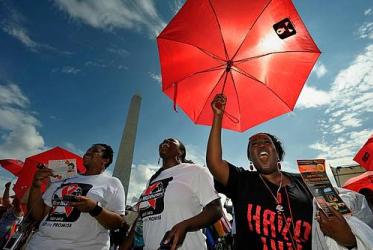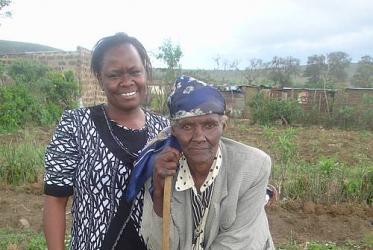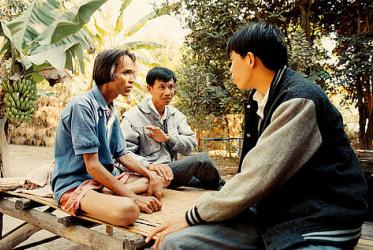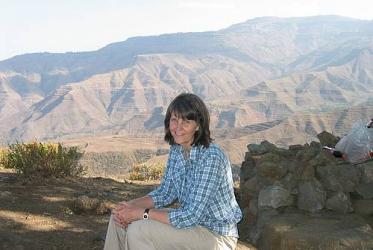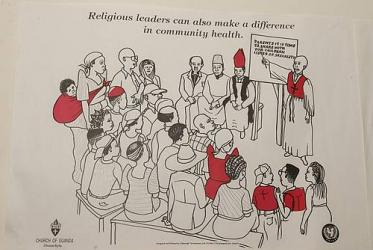Displaying 241 - 260 of 273
16 August 2012
Reducing the threat of HIV remains a challenge
04 July 2012
Addressing the HIV pandemic in South Sudan
01 June 2012
Preventing violence and HIV pandemic in Nigeria
19 April 2012
EHAIA, an African initiative going beyond Africa
01 March 2012
Responding to HIV with faith and courage
23 January 2012
Ecumenical Review offers responses to HIV and AIDS pandemic
10 January 2012
Fighting ignorance, fear and stigma through Bible study
09 December 2011
A toolmaker for HIV and AIDS awareness in Lusophone Africa
03 November 2011
Accelerating the church's response to HIV
11 October 2011
Supporting parents dealing with HIV/AIDS impact
29 September 2011
Mobilizing youth and women to reduce HIV
22 September 2011
Rethinking theology for HIV response
06 September 2011
WCC's HIV work reaches quarter-century mark
30 June 2011
Building AIDS-competent churches in Southern Africa
23 June 2011
Books key to the battle against HIV and AIDS in Africa
23 February 2011
“They have no wine”
30 November 2010

